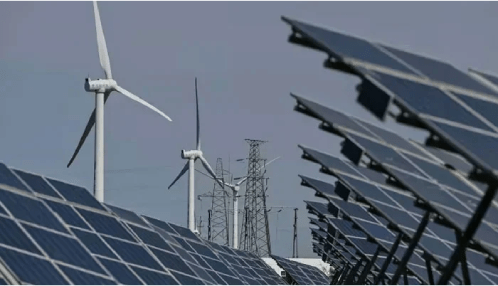US natural gas futures rose almost 3% to a one-week high on Friday as a major winter storm blankets the Northeast in snow, driving overall gas demand to its highest in a day since hitting a record in 2019.
As homes and businesses in New York and New England crank up their heaters to escape the freezing weather, next-day power and gas prices in the region jumped to their highest since January 2018.
Those US price increases came despite a 9% drop in European gas futures.
US gas futures followed European gas prices about two-thirds of the time during the fourth quarter of 2021 as utilities around the world scramble for liquefied natural gas (LNG) cargoes from the United States and elsewhere to replenish low stockpiles in Europe and meet surging demand in Asia.
Front-month gas futures rose 9.4 cents, or 2.5%, to $3.906 per million British thermal units (mmBtu) at 8:53 a.m. EST (1353 GMT), their highest since Dec. 29.
US natural gas futures rise nearly 3% on cooler weather forecasts
That increase put the front-month up about 5% for the week after it held steady last week.
Lingering cold since New Year’s Day has continued to cause well freeze-offs and other weather-related equipment problems in several regions, including the Permian in Texas and New Mexico, the Bakken in North Dakota and Appalachia in Pennsylvania, West Virginia and Ohio.
Data provider Refinitiv said those weather-related problems, which are normal during winter months, have cut average output in the US Lower 48 states to 94.5 bcfd so far in January, down from a record 97.6 bcfd in December.
With colder weather coming, Refinitiv projected average US gas demand, including exports, would rise from 128.8 bcfd this week to 134.3 bcfd next week, before easing to 131.1 bcfd in two weeks with the weather expected to turn less cold.
The forecasts for this week and next were higher than Refinitiv’s outlook on Thursday.
On a daily basis, Refinitiv projected total US gas demand plus exports would reach 147.9 bcfd on Friday, its highest since hitting a record 150.6 bcfd on Jan. 30, 2019.
That would top the 147.2 bcfd hit on Feb. 12, 2021 just before Winter Storm Uri left millions without power and heat for days after freezing gas wells and pipes in Texas and other US Central states.
The amount of gas flowing to US LNG export plants has averaged 12.0 bcfd so far in January, down from a record 12.2 bcfd in December.
With gas prices around $30 per mmBtu in Europe and $34 in Asia, compared with almost $4 in the United States, traders said buyers around the world would keep purchasing all the LNG the United States can produce.
But no matter how high global gas prices rise, the United States only has the capacity to turn about 12.2 bcfd of gas into LNG.
Global markets will have to wait until later this year for some of the 18 liquefaction trains under construction at Venture Global LNG’s Calcasieu Pass in Louisiana to start producing LNG.







